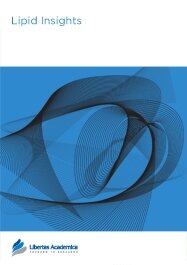


Northwestern University, Evanston, IL, U.S.A.
Abstract
Efficient delivery of genetic material to cells is needed for tasks of utmost importance in laboratory and clinic, such as gene transfection and gene silencing. Synthetic cationic lipids can be used as delivery vehicles for nucleic acids and are now considered the most promising non-viral gene carriers. They form complexes (lipoplexes) with the polyanionic nucleic acids. A critical obstacle for clinical application of the lipid-mediated DNA delivery (lipofection) is its unsatisfactory efficiency for many cell types. Understanding the mechanism of lipid-mediated DNA delivery is essential for their successful application, as well as for rational design and synthesis of novel cationic lipoid compounds for enhanced gene delivery. According to the current understanding, the critical factor in lipid-mediated transfection is the structural evolution of lipoplexes within the cell, upon interacting and mixing with cellular lipids. In particular, recent studies with cationic phospha- tidylcholine derivatives showed that the phase evolution of lipoplex lipids upon interaction and mixing with membrane lipids appears to be decisive for transfection success: specifically, lamellar lipoplex formulations, which were readily susceptible to undergoing lamellar-nonlamellar (precisely lamellar-cubic) phase transition upon mixing with cellular lipids, were found rather consistently associated with superior transfection potency, presumably as a result of facilitated DNA release subsequent to lipoplex fusion with the cellular membranes. Further, hydrophobic moiety of the cationic phospholipids was found able to strongly modulate liposomal gene delivery into primary human umbilical artery endothelial cells; superior activity was found for cationic phosphatidylcholine derivatives with two 14-carbon atom monounsaturated hydrocarbon chains, able to induce formation of cubic phase in membranes. Thus, understanding the lipoplex structure and the phase changes upon interacting with membrane lipids is important for the rational design and successful application of cationic lipids as superior nucleotide delivery agents.
PDF (2.21 MB PDF FORMAT)
RIS citation (ENDNOTE, REFERENCE MANAGER, PROCITE, REFWORKS)
BibTex citation (BIBDESK, LATEX)

The review process in Libertas Academica journals is prompt, objective and rigorous. The entire process is smooth and clear and all the editorial staff are cooperative and professional. Published papers are of top clinical and scientific value, and high metrics reflect the excellent quality of Libertas Academica's journals.
Facebook Google+ Twitter
Pinterest Tumblr YouTube